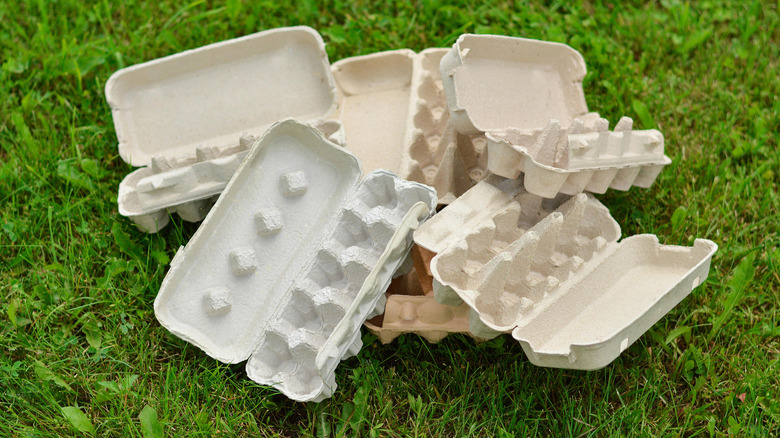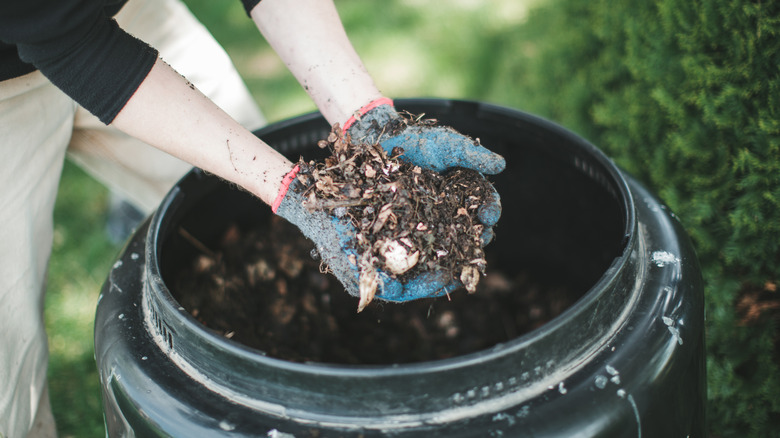Always Add Empty Egg Cartons To Your Compost Bin. Here's Why
Composting has been an eco-friendly practice for generations, well before it even bore the name. My own grandmother, who wasted almost nothing and lived in a rural environment, routinely separated food scraps into ones that would easily biodegrade, burying them in holes or piles at the edge of her property. There was no internet for how-to information, just handed-down techniques or common sense intuition.
We know a lot more today about how and why compounds work together for ultimate composting, including things like adding empty egg cartons into your compost bin. They contribute to balancing the four main organic ingredients for composting: Carbon, also known as brown matter; nitrogen from green matter; water for moisture; and oxygen for air. Cardboard or paper egg cartons harbor high levels of the necessary carbon, which helps break down typical composting green-matter foods such as fruit and vegetable scraps, coffee grounds, or grass and yard clippings. For quality compost, it's crucial to maintain that ratio of carbon-rich and nitrogen-rich materials.
The paper egg cartons, along with other brown-matter ingredients like wood chips and dry twigs or leaves, have even more to contribute. They aid in water retention, thereby maintaining the moisture levels your compost pile needs. And that smell that sometimes emanates from compost bins? Paper egg cartons can help alleviate that by absorbing excess moisture and nitrogen, which otherwise can lead to obnoxious smells.
How to incorporate paper egg cartons into compost bins
Paper-based egg cartons can work wonders in a compost pile — but how do we properly incorporate them into our home-based composting setup? The most important thing is to properly prepare them for the journey. The easiest way to do that is to simply tear the carton into very small pieces, which helps them break down more quickly. If the carton is covered in external stickers or labels, remove them before deconstruction, as they may contain chemicals or materials that would interfere with composting ratios or even upset the organic nature of the composting process.
Next, incorporate the torn pieces into your ongoing compost, mixing for deeper distribution and even breakdown. It's important to note that the egg cartons must be paper, not ones made from styrofoam or other materials. It's also best to avoid paper cartons with wax or plastic coating whenever possible.
Egg cartons aren't the only egg-centric contributions to the world of home composting. An empty egg carton usually means you've used at least a dozen eggs, and therefore have some empty cracked eggshells lying about somewhere. Those shells can also go into a composting bin to help speed up decomposition and potentially add calcium to the soil you'll be using in your garden, which can, in turn, help future plants build stronger cell walls. However, you'll need to avoid inadvertently introducing egg-based Salmonella bacteria into the mix. To kill any potential bacteria, rinse and dry the eggshells in a low-heat oven for up to 20 minutes at around 200 degrees Fahrenheit.

